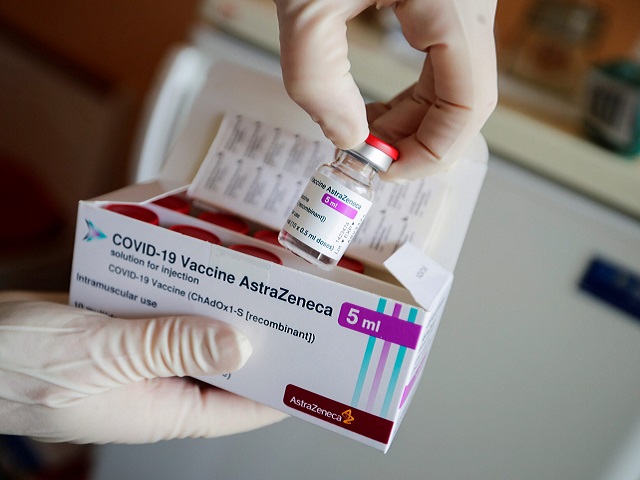
AstraZeneca defended its COVID-19 vaccine on March 12, 2021 saying that there was "no evidence of an increased risk" of blood clots.
The European and UK medicines regulators also defended AstraZeneca's COVID-19 vaccine saying that the link between the vaccine and blood clots has not been confirmed and that rollouts should continue.
This comes after a group of European countries- Denmark, Norway and Iceland temporarily suspended the use of AstraZeneca's COVID-19 vaccine on March 11, 2021. Bulgaria became the latest to follow suit on March 12 with Prime Minister Boyko Borissov ordering a temporary halt to vaccination using AstraZeneca Covid-19 vaccine until the European Medicines Agency "rejects all doubts" about the vaccine's safety.
One Asian country-Thailand also suspended the use of the vaccine. Thailand's Prime Minister Prayut Chan-o-cha canceled plans to publicly get the AstraZeneca vaccine shot on March 12.
Read more here: Thailand becomes first Asian country to halt use of AstraZeneca's COVID-19 vaccine
No evidence of increased risk of pulmonary embolism: AstraZeneca
The European nations had temporarily suspended the use of AstraZeneca's Covid-19 vaccine due to concerns about patients developing blood clots post-vaccination. The move came after a 49-year-old nurse died of "severe blood coagulation problems" days after receiving the vaccine in Austria, following which the nation suspended the use of a batch of AstraZeneca vaccines on March 8th.
The European Medicines Agency (EMA) however, insisted that AstraZeneca's Covid-19 vaccine is safe. It also said that the preliminary probe showed that the batch of AstraZeneca vaccines used in Austria was likely not to blame for the nurse's death.
The agency urged countries to keep rolling out the vaccine while investigations take place. It added saying that the vaccine's benefits continue to outweigh its risks and it can be administered while the investigation of cases of thromboembolic events is ongoing.
UK's medicine regulator, Medicines and Healthcare products Regulatory Agency (MHRA), also issued a statement on March 11, 2021 reassuring the public that the vaccine is still safe and that "people should still go and get their COVID-19 vaccine."
Read more here: Denmark, Norway, Iceland temporarily halt use of AstraZeneca COVID Vaccine
AstraZeneca also defended its vaccine saying that the analysis of their safety data of more than 10 million records showed no evidence of an increased risk of pulmonary embolism (blockage caused in pulmonary arteries by blood clots) or deep vein thrombosis in any defined age group, gender, batch or in any particular country with COVID-19 Vaccine AstraZeneca.
The company added saying that, "In fact, the observed number of these types of events are significantly lower in those vaccinated than would be expected among the general population."
As per reports, real-world data also shows that the vaccine is having a significant impact in reducing Covid-19 hospitalizations. A single dose of the vaccine reportedly reduces the risk of hospitalization from Covid-19 by more than 80% in people aged over 80.
Background
Denmark was the first country to temporarily suspend the use of AstraZeneca's vaccine. The Danish health authority though stressed that the move was precautionary.
On other hand, several other nations including France, Germany, the Netherlands, Mexico, Nigeria and the United Kingdom continued their rollout of the vaccine, reassuring their citizens of its safety.
The concerns over the AstraZeneca vaccine come at a time when there are already disputes over its slow supply to the European Union.


0 Comments